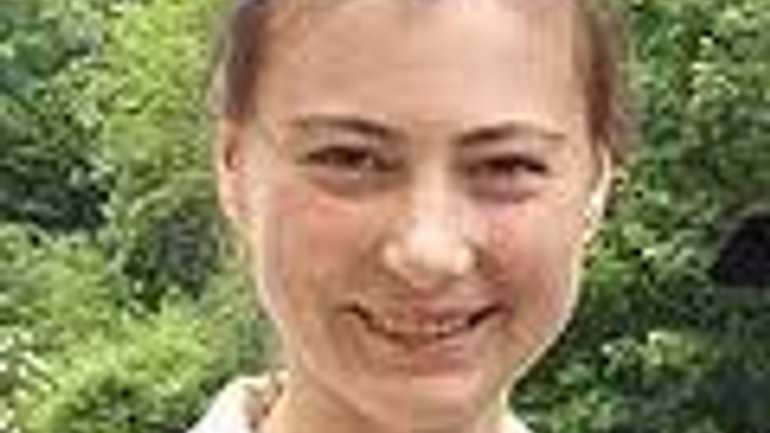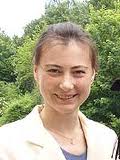Lesia Kovalenko: In the future we want Social Days to be for the whole UGCC

The fourth Social Days of the UGCC began on November 7. This year they are taking place in six different cities and include spiritual, educational, and art events, all with the same theme: “In the Beginning was the Word: Communication in the 20th century.” To learn about the peculiarities of this year’s Social Days, about the plans and expectations of the events, we talked to the head of the Justice and Peace Commission, Lesia Kovalenko, Ph.D.
 Why were the cities Kyiv, Zhytomyr, Kharkiv, Odesa, Kherson, Kirovohrad, and Lutsk chosen? What are the similarities and differences in the programs between these cities?
Why were the cities Kyiv, Zhytomyr, Kharkiv, Odesa, Kherson, Kirovohrad, and Lutsk chosen? What are the similarities and differences in the programs between these cities?
Kyiv, Odesa, and Kirovohrad are holding Social Days for the third time. In Kharkiv, they are being for the second time; and in Zhytomyr, Kherson, and Lutsk, for the first time.
At first we thought we should vitalize Kyiv for there are many of us (Greek Catholics) there, there is an infrastructure, ties with journalists and politicians. There social themes can not only be discussed but also resolved. Later an idea arose to hold local discussions in other cities as well. Such discussions were successful in Odesa and Kirovohrad.
The necessary conditions for holding the Social Days are the eagerness of the community, the blessing of the local bishops, and the ability to organize a program. Our task is only to assist its conduction with our experience, experts, and finances. A local coordinator and the local community are responsible for the program. We ask to take into account three elements: time for an ecumenical prayer, time for discussion and sharing experiences, and time for a specific good deed (a visit to a prison, orphanage, specialized hospitals, etc.)
Therefore, the programs vary from city to city. In Kyiv, for example, there is a Liturgy with sign-language interpretation, a street exhibit, a seminar in the National University Kyiv Mohyla Academy, thematic spiritual meetings in three parishes. In Zhytomyr there is a meeting with His Beatitude Lubomyr (Husar). In Odesa, there is a presentation of programs of the commission of pastoral care for persons with hearing impairments. The fullest program this year is probably in Kharkiv.
How do this year’s Social Days differ from previous ones?
We tried a few new things: Together with the Information Department of the UGCC we organized a competition of parishes’ press services “The Information Side of a Parish” (More about the competition can be found here: http://www.ugcc.org.ua/news_single.0.html?&L=2&tx_ttnews[pS]=1284061085&tx_ttnews[tt_news]=3951&tx_ttnews[backPid]=1&cHash=3cce4c4c35). We also installed an exhibit “Through the Eyes of the Poor,” which includes reproductions of paintings, copies of photos, and photos of sculptures of artists from 32 European countries, as well as quotations from the works of the Church Fathers dedicated to poverty and wealth. The paintings, photos, and sculptures were first presented in the European Parliament in Strasbourg (in 2009) by the Conference of European Justice and Peace Commissions (to which the UGCC’s Justice and Peace Commission belongs).
Why was the theme of communication chosen? What is the key aspect of the Social Days?
The theme of communication often leads only to a discussion of the effectiveness of different means of communication. Our goal is to bring attention to something deeper – why, about what, and how are we communicating? We want to discuss and show various aspects of communication: individuals with God, between people, between religions, churches and states. We hope to discuss the basic problematic places and find possible outcomes. In the theological aspect, this year we focused on the Biblical dimension. One of the honored guests this year is Father Raphail Turkoniak, a professor at the Ostrov Academy and laureate of the Shevchenko Prize, who will talk about existing and future Ukrainian translations of the Bible. Another honored guest, Myroslav Marynovych, will analyze the problems of introducing moral imperatives in the society.
What unites all the events – art, educational, and pastoral?
The leitmotif of the 4th Social Days about communication is the Biblical excerpt: “In the beginning was the Word.” God speaks to man. God’s Word is between us. Do we hinder this by the din of the news, shows, advertisements, etc.? How do we respond to the calling of, for example, a journalist? How can the church fulfill its mission and not lose its essence in the information age of the 21st century?
It is worth underlining the positive aspects of the information society – the growth in freedom and understanding, the access to information and knowledge, work becoming more individualistic and “domestic,” the possibility of unrestricted communication, and so forth. But we also want to discuss the dangers – manipulation of the consciousness, complex thought, the loss of criteria and boundaries (for example, work hours in the office had been clearly defined but now the worker may have to work “from home” at any time), and so on.
Most of the events of the Social Days are “interdisciplinary.” The street exhibit is not only an art event but rather a socially conscious event; the sign-language interpretation of the Liturgy and the pastoral care meetings is also not the essence of pastoral events. Round tables and debates we see as an occasion for presenting positions, for sharing experiences, and for the possibility of brainstorming.
Social Days unites all kinds of people: parishioners, clergy, experts, Greek Catholics and representatives of other denominations and religions. It is pleasant to see that parishes are becoming more and more active.
What are the expectations of this year’s Social Days and the plans for the future?
In some areas our initial plans have been surpassed. For example, the decision of the jury to hold a competition of press services of the parishes every year was a pleasant surprise. We hope to inspire journalists and media workers to continue holding meetings and create strategies to develop church press services.
For next year we chose the theme: “A person’s dignity as a foundation of civil society.” We want to direct special attention to the discussion of the centers that are most important for strengthening a person’s dignity: family, school, medicine, army, government, and so on. Thus, we invite other departments, commission, and organizations to hold Social Days. For the future we dream to organize Social Week for the whole UGCC, for many themes (such as between globalization and localization, or the ecological responsibility of a Christian) are shared by all continents where are faithful live.
Prepared by Mariana Karapinka









